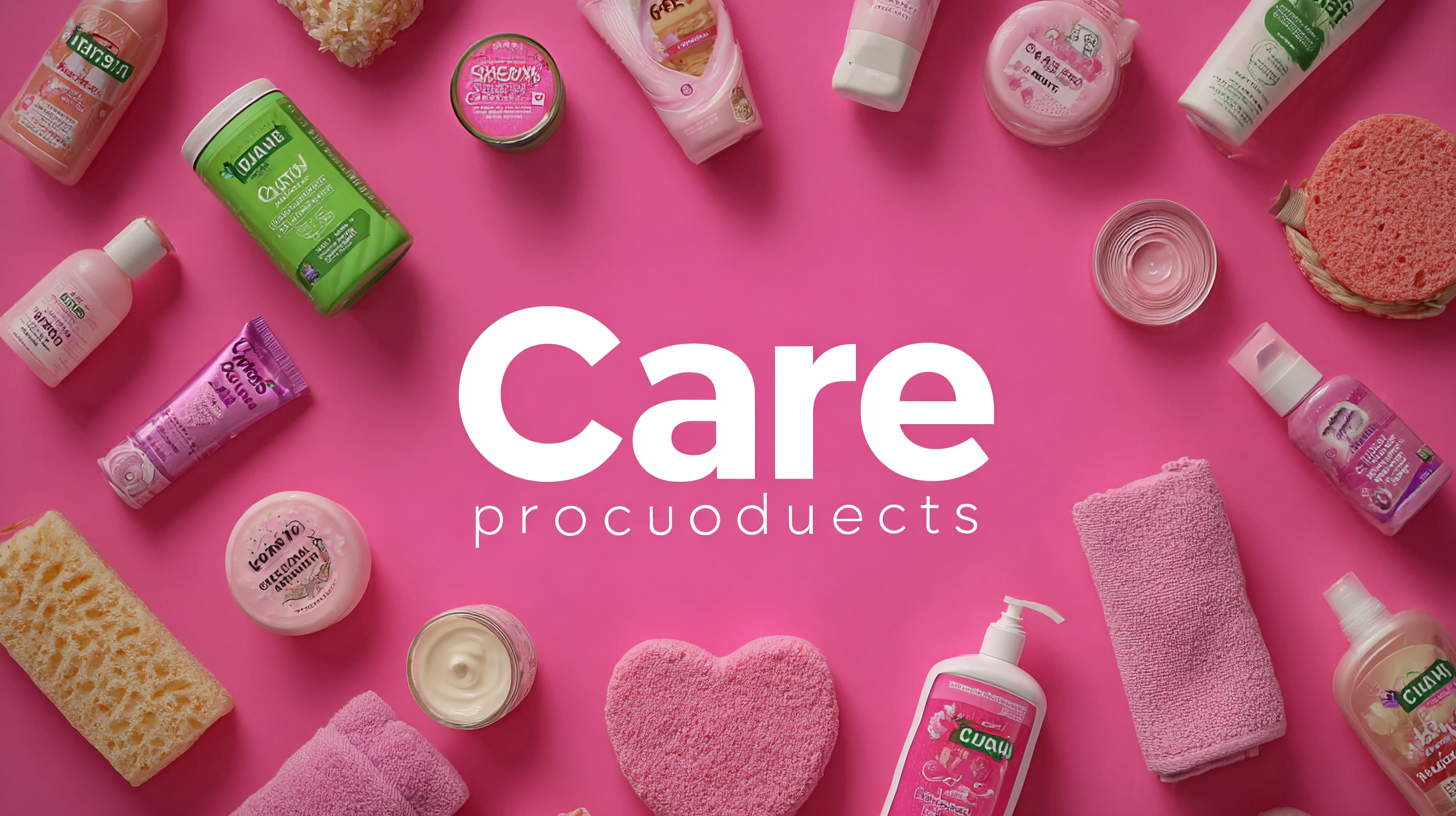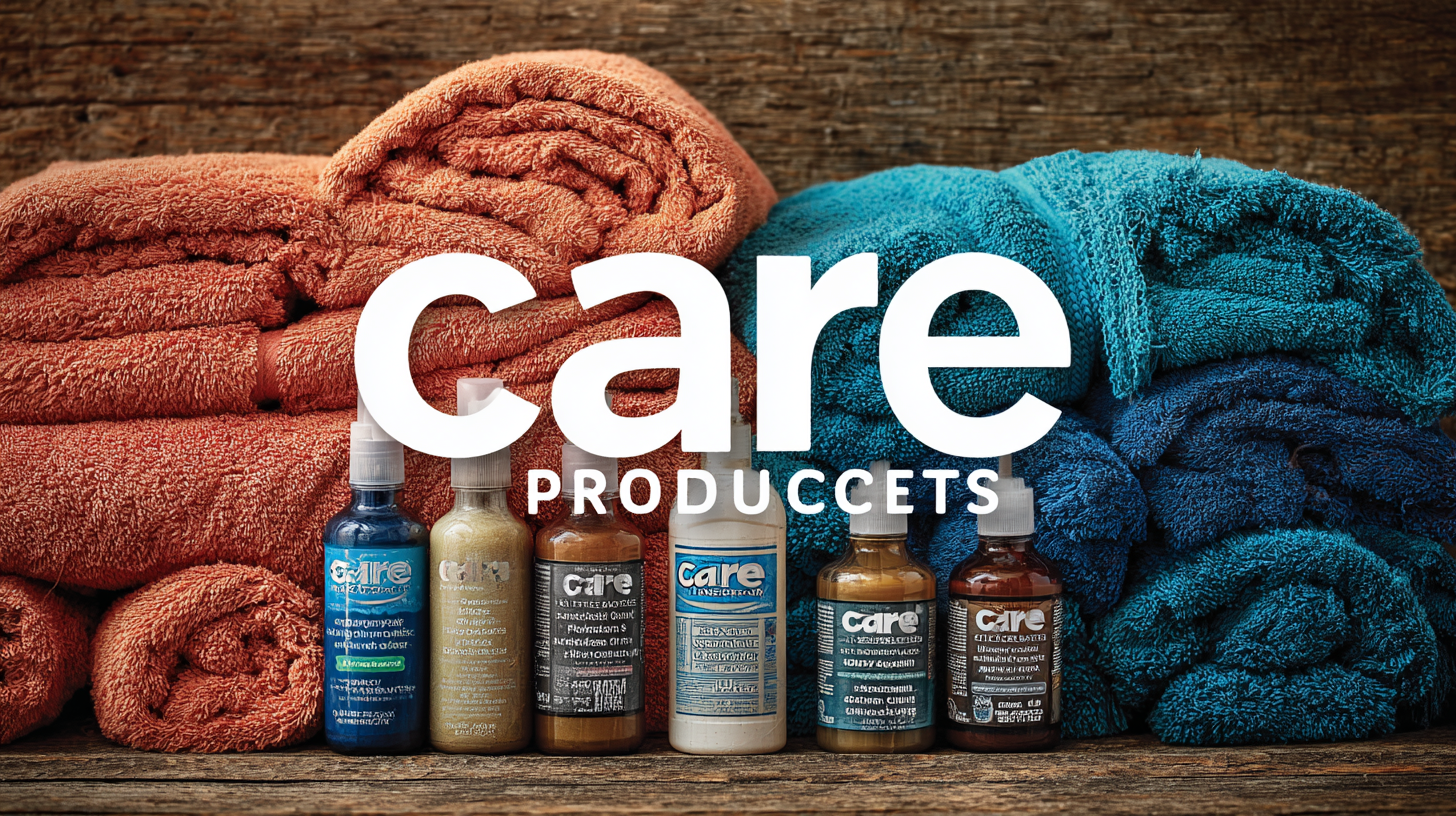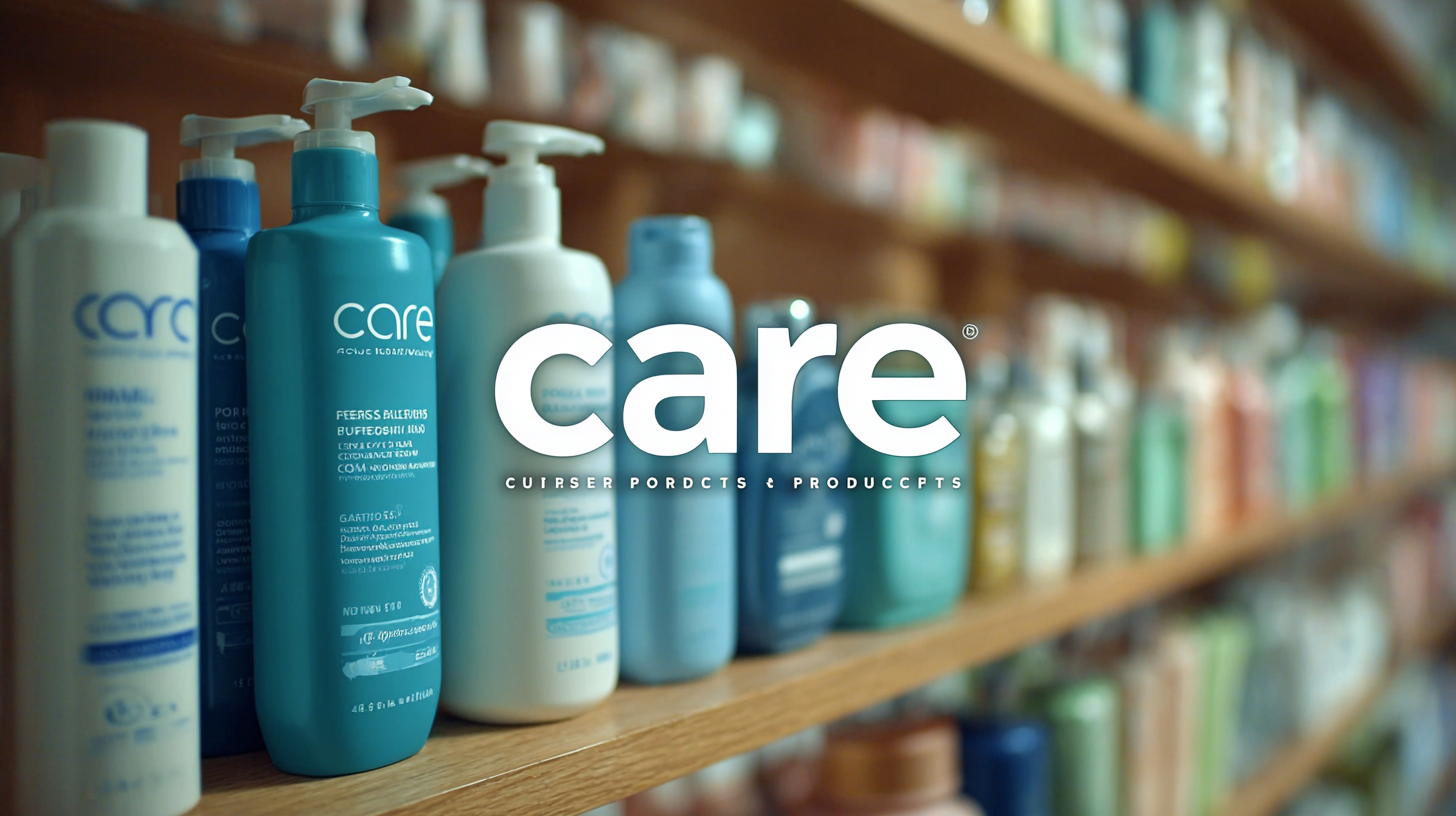Exploring the Unique Features and Applications of Best Care Products for Global Buyers
In the ever-evolving landscape of personal wellness, the demand for high-quality care products continues to soar, with the global market projected to reach $1.5 trillion by 2025, according to recent industry reports. This surge is driven by an increasing awareness of the importance of health and hygiene, alongside a burgeoning interest in sustainable and innovative products. From skincare to health supplements, care products have diversified significantly, catering to the unique needs of consumers worldwide.
As global buyers seek out the best options available, understanding the unique features and applications of these care products becomes essential. In this blog, we will delve into exemplary types of care products that not only meet consumer expectations but also offer remarkable efficacy and value, setting the stage for informed purchasing decisions.

Unique Characteristics of Top Care Products for International Markets
 In the competitive landscape of global markets, top care products stand out due to their unique characteristics tailored to diverse consumer needs. These products often incorporate innovative ingredients that address specific health and beauty concerns, reflecting cultural preferences and lifestyle demands.
For instance, some regions may favor natural and organic formulations, while others might prioritize high-performance attributes. Understanding these variations is crucial for brands looking to penetrate international markets.
In the competitive landscape of global markets, top care products stand out due to their unique characteristics tailored to diverse consumer needs. These products often incorporate innovative ingredients that address specific health and beauty concerns, reflecting cultural preferences and lifestyle demands.
For instance, some regions may favor natural and organic formulations, while others might prioritize high-performance attributes. Understanding these variations is crucial for brands looking to penetrate international markets.
Tip: When selecting care products for different demographics, research local trends to identify what resonates with consumers. Engaging with local influencers can also provide insights into the characteristics that matter most.
Moreover, packaging plays a vital role in appealing to international buyers. Attractive, user-friendly packaging that communicates the product's benefits clearly can significantly impact purchasing decisions. Brands should consider environmental sustainability in their packaging choices, as eco-conscious consumers are on the rise globally.
Tip: Opt for recyclable materials and emphasize sustainability in your marketing strategy to attract eco-minded consumers. Balancing functionality with aesthetics will enhance the overall appeal of the product.
Comparative Analysis: Best Care Products Across Different Regions
In recent years, the global cosmetics market has seen a remarkable shift towards specialized care products tailored for diverse consumer needs across various regions. The increasing valuation of the vegan cosmetics market, projected to reach $20.48 billion by 2025, reflects a growing preference for ethical and natural ingredients among global buyers. This trend underscores a significant comparative diversity in consumer preferences, with regions embracing distinct formulations that align with cultural values and lifestyle choices.
Furthermore, when examining the wound care market, which is expected to significantly expand by 2031, we can see a similar trend. The market's growth is driven by advancements in product types ranging from advanced wound dressings to traditional care methods, catering to different end-users like hospitals and specialized clinics. Regional variations not only influence product preferences but also the particular challenges faced in managing chronic wounds, hinting at the necessity for localized approaches in product development and marketing strategies.

Key Applications of Leading Care Products in Diverse Industries
The world of care products is vast, with numerous applications spanning various industries, each tailored to meet specific needs. In the healthcare sector, for instance, advanced personal care products are instrumental in improving patient outcomes and enhancing comfort. From antimicrobial wound dressings to specialized skincare for sensitive skin, these products are designed with precision to ensure safety and efficacy. They address not only medical needs but also cater to the emotional well-being of patients, showcasing how care products can play a multifaceted role in healthcare environments.
Beyond healthcare, the beauty and personal care industry thrives on innovative products that emphasize self-care and sustainability. Leading brands leverage natural ingredients and eco-friendly packaging to appeal to environmentally conscious consumers. These care products not only offer aesthetic benefits but also promote overall wellness, reflecting a growing trend towards holistic health. In the realm of elder care, tailored personal grooming and hygiene products ensure dignity and comfort, highlighting the critical role of care products in enhancing quality of life for aging populations. Each sector demonstrates how leading care products adapt to meet the demands of diverse consumer bases, cementing their importance in our daily lives.
Exploring the Unique Features and Applications of Best Care Products for Global Buyers - Key Applications of Leading Care Products in Diverse Industries
| Product Type | Unique Features | Key Applications | Target Industries |
|---|---|---|---|
| Moisturizing Cream | Deep hydration, lightweight formula | Skin hydration, anti-aging | Cosmetics, Skincare |
| Antiseptic Wipes | Alcohol-based, portable | Disinfection, hygiene maintenance | Healthcare, Travel |
| Sunscreen Lotion | Broad-spectrum protection, water-resistant | UV protection, skin care | Cosmetics, Outdoor Sports |
| Hair Conditioner | Nourishing formula, pH balanced | Moisturizing, detangling | Cosmetics, Haircare |
| Therapeutic Shampoo | Anti-dandruff, soothing properties | Scalp care, cleansing | Healthcare, Haircare |
Consumer Preferences and Trends for Global Care Products
Consumer preferences in the global care products market are constantly evolving, driven by trends that emphasize sustainability, natural ingredients, and multi-functionality. Today's buyers are increasingly seeking products that not only fulfill their immediate needs but also align with their values and lifestyles. For instance, the rising demand for eco-friendly packaging and cruelty-free formulations reflects a growing awareness of environmental issues and ethical consumerism.
When shopping for care products, consider these tips to make informed choices. First, always check the ingredient list; opting for products with minimal, recognizable ingredients can enhance your skincare routine while reducing the risk of adverse reactions. Additionally, look for brands that offer transparency regarding their sourcing and manufacturing processes, ensuring that you are supporting companies with ethical practices. Lastly, try to sample products or read reviews before purchasing to gauge effectiveness and suitability for your specific needs.
As trends continue to shift towards holistic and personalized care solutions, embracing individual preferences becomes essential. By focusing on characteristics such as cultural relevance and personalized marketing approaches, brands can better cater to the diverse tastes of global consumers, ultimately elevating their market presence and consumer loyalty.
Consumer Preferences for Care Products in 2023
Evaluating Effectiveness: How to Choose the Right Care Product for You
Choosing the right care product in a saturated market can be a daunting task for global buyers. According to a report by Grand View Research, the global personal care market is projected to reach USD 716.6 billion by 2025, highlighting the need for consumers to make informed choices. One critical factor in selecting effective care products is understanding their ingredients. Products containing natural extracts and clinically tested components typically demonstrate higher efficacy and safety. For instance, a survey by the International Journal of Cosmetic Science revealed that 65% of consumers prefer products with plant-based ingredients, linking them to enhanced skin health.
Another essential consideration is product performance, which can be evaluated through consumer reviews and clinical trials. Research from Statista shows that 54% of buyers base their purchase decisions on product ratings and recommendations. When assessing a care product, buyers should look for certifications and results from independent studies. For example, dermatologically tested items not only assure safety but also provide evidence of effectiveness. By utilizing industry data and consumer insights, global buyers can navigate the complexities of choosing care products that truly meet their personal needs.
